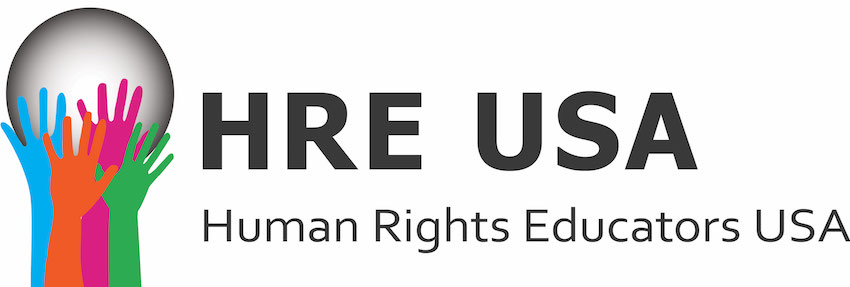New Jersey’s Commitment to Human Rights Education
The state of New Jersey is one of 35 U. S. states that currently include at least one mention of human rights in their social studies curriculum standards (Banks, 2007). In contrast to many other states, New Jersey has made human rights a central feature of the four thematic strands that organize the content for the 3 overarching social studies standards (6.1–U. S. History: America in the World, 6.2—World History/Global Studies, 6.3—Active Citizenship in the 21st Century). In the thematic strand labeled “Civics Government and Human Rights”, these two essential questions are posed.
- How do citizens, civic ideals, and government institutions interact to balance the needs of individuals and the common good?
- How have economic, political, and cultural decisions promoted or prevented the growth of personal freedom, individual responsibility, equality, and respect for human dignity?
Although these two essential questions do not reflect the broadest conception of universal human rights, they are a useful starting point for considering how human rights content can be integrated within one or more of New Jersey’s three overarching social studies standards.
More importantly, as you read the 2014 Revised NJ Social Studies Curriculum Standards, you are able to easily locate content under standards 6.1, 6.2 and 6.3 related to human rights by noting where you see the designation “A” (referring to the Civics, Government and Human Rights” strand). Using the lessons in this integration guide as models, you will then be able to identify relevant content in all three standards where you can integrate lessons about human rights issues within existing social studies courses.
Click here to access the 2014 revised NJ Social Studies Curriculum Standards, where you will find charts organized by standards and thematic strands. Under the thematic strand “A. Civics, Government and Human Rights”, you will find many examples of content and related performance indicators where you can easily integrate human rights education lessons such as those included in this guide, or others you design using the lessons in this guide as models
Holocaust and Genocide Education in New Jersey
Predating the creation of the NJ Core Curriculum Standards, the NJ Commission on Holocaust Education has long emphasized the close relationship between study of the Holocaust and genocides and the study of human rights in New Jersey classrooms. Since the passage of the Holocaust and genocides education legislative mandate in 1994, NJ students in both elementary/middle and secondary education have been taught about human rights content and issues as part of their study of the Holocaust and genocides. The Commission’s rationale statement (available here) includes the protection of international human rights as a core priority of Holocaust/genocide education. Of the six stated goals in the Commission’s rationale statement, human rights is incorporated in goal E.
“Study of the Holocaust and genocides in the public schools of New Jersey is designed to… e. develop recognition and respect for cultural diversity, as well as for the protection of international human rights for all members of society.”
Standards Integration Guide for Model Lessons
For each lesson, this table provides the relevant content standard, grade level for use, cumulative progress indicator (CPI) and author/school district information.
Please note that this guide will be expanded as new model lessons are prepared, reviewed, field-tested and revised based upon student and expert feedback. Those lessons will be mounted on this website as they become available, and we welcome the involvement of social studies educators in New Jersey and elsewhere who wish to contribute to this project. Contact William R. Fernekes at bill41@comcast.net if you want to participate in this project.
The National Council for the Social Studies adopted a position statement on the important role of human rights education in social studies education n September 2014, and that position statement provides a comprehensive rationale to justify making human rights education a central component of any district’s social studies program.
